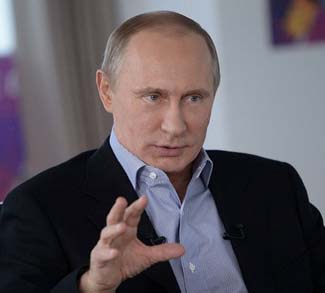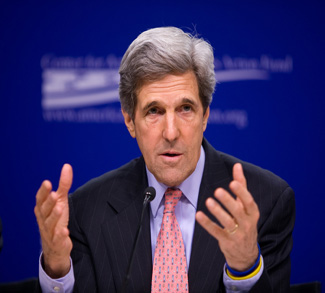FORECAST
Despite Serbian and Russian objections, the Albanian majority Serbian Province of Kosovo declared independence on Monday February 18. The country was quickly recognized as independent by numerous other countries in the EU and abroad. The United States soon followed.
Serbia and Russia have refused to recognize Kosovo’s independence arguing the declaration is illegal and sets international precedent that is applicable to other breakaway regions including pro-Russian South Ossieta and Abkhazia in Georgia. It is unlikely that Russian will push for the application of this principle too strongly, however, as it could also be applied by separatists in Russia’s Chechnya.
There is little that Russia can do to alter events in the EU influenced Balkans. As President of Belarus, Aleksander Lukashenko, aptly noted, the time to prevent Kosovar succession has long passed. Kosovo’s declaration was merely the conclusion of the long unfolding breakup of the Former Yugoslavia. In light of this fact, current events in the region can only fully be understood in their historical context.
The History of Yugoslavia
The South Eastern European country of Yugoslavia (or ‘the Land of South Slavs’) was a monarchy formed after WWI as a kingdom of Serbs, Slovenes and Croats. It was Invaded and occupied in 1941 by Axis forces until the communist-led resistance movement gained control of the country in 1943, putting an end to the Monarchy. In 1956 the country’s constitutional democracy was suspended and a communist state was established.
The Yugoslav wars began in 1991, starting the beginning of the fractionalization of the country. The ethnic conflict lasted at least until 2001 and was, for the most part, a war between the Serbs on one side and the Croats and Armenians on the other.
Early on, Macedonia declared independence after a referendum and largely avoided conflict.
Slovenia succeeded during the 1991 Ten-Day War where the Yugoslav People’s Army was ordered to secure border crossings in an attempt to prevent succession. A negotiated settlement to the conflict eventually led to independence.
The Croation war of independence followed. It was a conflict between the Croats who had recently declared independence and the Serbs in the region who wanted to remain part of Yugoslavia. In January 1992 the Yugoslav People’s Army withdrew and a ceasefire agreement was made. Conflict on a smaller scale continued until 1995 when a Croat military strike successfully regained all of its territory and the approximately 250,000 Serbs fled the region.
Ethnic conflict spread leading to NATO intervention. NATO bombed Slobodan Milosevic’s Bosnian-Serb artillery and other military targets in an attempt to stem the conflict. An estimated 100,000 people died with 2,500,000 people internally displaced.
Croatia and Bosnia & Herzegovina were recognized as independent at this time.
In 1999 clashes between Serbian forces and ethnic Albanians in Kosovo resulted in NATO intervention. The Province remained part of Bosnia but was governed by NATO.
In 2003 Yugoslavia became Serbia and Montenegro and in 2006, after a referendum, Montenegro separated.
In February 2008 Kosovo declares independence. The former Yugoslavia now consists of Bosnia and Herzegovina, Croatia, Macedonia, Montenegro, Serbia, Slovenia and Kosovo.
SUMMARY OF EVENTS: February 18 – February 25, 2008
WORLD
Oil futures shot higher Tuesday, closing above $100 for the first time as investors bet that crude prices will keep climbing despite evidence of plentiful supplies and falling demand. At the pump, gas prices rose further above $3 a gallon.
An international meeting in New Zealand has produced a draft treaty to ban cluster bombs. Campaigners say the meeting has given a decisive push to efforts to create a meaningful global agreement but success is far from guaranteed.
NATO
NATO chief Jaap de Hoop Scheffer called Thursday for more international commitment to the fight against the Taliban, saying extremists were intent on destabilizing the West as well as Afghanistan.
NORTH AMERICA
United States
The United States declared it successfully shot down an out-of-control spy satellite on Thursday, knocking it into the sea before it crashed to Earth, potentially causing damage.
Canada
Canada and the US have signed an agreement that paves the way for the militaries from either nation to send troops across each other’s borders during an emergency, but some are questioning why Canadian Prime Minister Stephen Harper’s government has kept silent on the deal.
CARRIBEAN
Cuba
An ailing 81-year-old Fidel Castro resigned as Cuba’s president Tuesday after nearly a half-century in power. He stated that he will not accept a new term when parliament meets Sunday.
WESTERN EUROPE
United Kingdom
Princess Diana and Dodi Al Fayed were murdered, Dodi’s father Mohamed Al Fayed has told the inquest into their deaths in a 1997 Paris car crash. In his testimony he implicated Tony Blair, MI5, MI6 and the British ambassador to France.
Northern Rock, which suffered the first run by UK bank depositors in more than a century, may remain nationalized for years to come, according to the chairman appointed by Prime Minister Gordon Brown’s government.
EASTERN EUROPE
Serbia / Kosovo
Kosovo declared independence on Monday. The United States and other countries recognized the state as a “special case” despite angry objections by Russia, China and other powers.
Thousands of Serbs chanting ‘‘Kosovo is Serbia’’ marched Tuesday to a bridge dividing them from ethnic Albanians while others torched UN border checkpoints and cars to protest Kosovo’s declaration. Serbia is to hold a mass rally on Thursday in protest.
Violent protests rocked Serb-dominated northern Kosovo on Friday. Mobs chanting, “Kosovo is ours!” hurled stones, bottles and firecrackers at UN police guarding a bridge that divides Serbs from ethnic Albanians.
Moscow’s ambassador to NATO says Russia could resort to ‘brute force’ if NATO or the EU formally recognize Kosovo as an independent state.
THE MIDDLE EAST
Israel
Israel is planning to assassinate senior figures of Hezbollah, Hamas and even Iran after killing Imad Mugniyah in Syria, a new report says.
Iran
The Russian national currency, ruble, is an option for dealings at the Iran Oil Bourse, set to be launched soon, an Iranian official says.
Iran established its first oil products bourse Sunday in a free trade zone on the Persian Gulf Island of Kish, the country’s oil ministry said.
The United States is clandestinely funding militant groups within Iran’s borders to destabilize the country, The Daily Telegraph says.
SOUTH ASIA
Pakistan
Pakistani President Pervez Musharraf’s opponents won a big election victory on Tuesday as voters rejected his former ruling party, raising doubts whether the US ally who has ruled since 1999 can keep power. Musharraf says he has no plans to resign, despite the sweeping victory.
Sri Lanka
Sri Lanka has said it was procuring arms from Pakistan to meet the threat from the Tamil Tigers.
AFRICA
US President George W. Bush said Wednesday that the United States has no plans to build new military bases in Africa, amid concerns on the continent about a new AFRICOM command now based in Germany.
Andrew G. Marshall is a contributor to Geopoliticalmonitor.com



